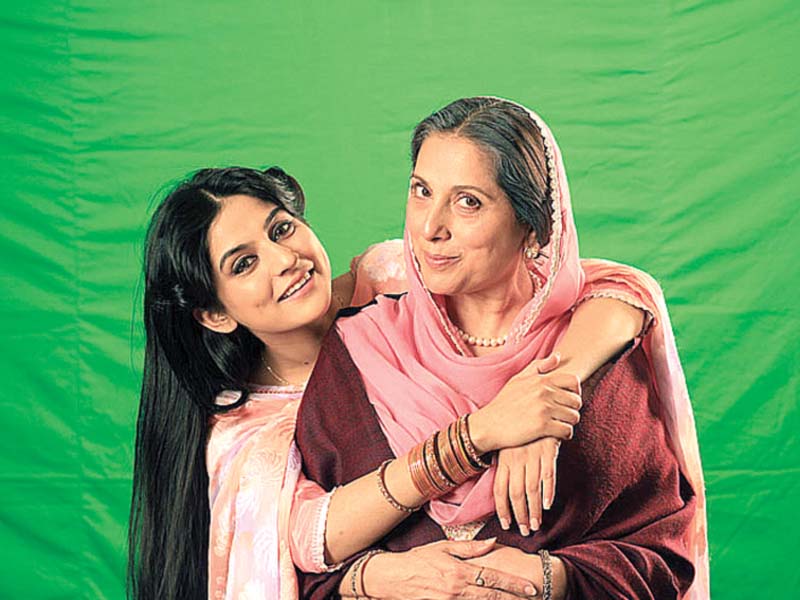
Popular Pakistani playwright, novelist Umera Ahmed is muscling up to launch what she calls the country’s first digital platform for commercial writers. Titled Alif Kitab, the project aims to provide budding writers a space to learn and share their creations.
For this initiative, Umera has emptied her pockets fully. “I have invested my royalties and savings into it,” she told The Express Tribune. The website, which is currently under construction, is set to go live towards the end of April. “Illegal copies of books of Pakistani writers are widely circulated over the internet. Alif Kitab will not only serve as learning tool for upcoming writers but will also host content legally,” she said.
Selling the drama: Artistes ask for their theatre back
Alif Kitab will provide services free of cost for a period of three months after which it will turn into a subscription-based platform. “The fee will be around Rs1,000 per annum,” she said.

Through the platform, budding writers will not only be able to obtain editorial guidance from experts, but they will also be able to submit their writings to media and production houses. “We will help them monetise their work and distribute it.”
The first two projects that Alif Kitab will roll out are a digital magazine and online writing workshops. “We are focusing on fiction writing for now. In the next phase we will develop our section for children,” she said. Having grown up reading a wide variety of writers, from Jane Austen and Virginia Woolf to Ishtiaq Ahmed, Umera feels today there’s hardly anything being written specifically for children.
With Alif Kitab she also plans on archiving screenplays of popular Pakistani TV dramas and films of the past. This will help the writers of today establish a connection with our literary canon, which she feels is lacking in the writing of today.
An epoch ends with Bajia’s passing
Umera is herself concerned over the current state of Pakistani drama. “The drama of today is so bad it is quite scary to be honest,” she said. When asked to define what exactly she means as bad, she said, “Anything that one cannot watch with one’s family.”
She said dramas of the past also addressed issues ranging from rape to extramarital affairs but there was a certain decency with which they were shown. “Today all that has changed.” However, she refuses to lay the blame on writers alone. “It is a demand of channel owners. They want the element of shock in every play. Rape sells in Pakistani drama,” she said.
Setting the entertainment argument aside, one cannot deny TV drama’s role as an agent for public discourse. In a country where issues like women empowerment are also labelled as “obscene” by certain quarters, defining what’s bad for screen audiences becomes a little problematic. Referring to homosexuality which recent films like Kapoor & Sons and Ki and Ka have addressed openly, she said, “We should give importance to issues that plague our societies and not issues of the West.” When asked whether a rating system similar to that of cinema can work if TV content is created for certain age brackets, she said, “A rating system won’t work here. Already there are few avenues for entertainment. In a poor household, everyone assembles in front of the TV for dinner and the 8pm drama. You cannot keep children away from them.”

Case for digest writers
Umera belongs to the crop of writers who owe their popularity to Urdu digests. While naysayers may write digests off as lowbrow literature, she feels people still read them. “Digests are a guilty pleasure of everyone,” she said, adding, “No matter how much people accuse digest writers for their tunnel vision or for reducing storylines to the kitchen.” Ahmed feels that it is these very writers who have held Pakistani drama together. “There was a time when PTV churned out great content. But then they became complacent. They thought no one can outdo them and this caused their downfall,” she said.
Published in The Express Tribune, April 3rd, 2016.
Like Life & Style on Facebook, follow @ETLifeandStyle on Twitter for the latest in fashion, gossip and entertainment.


1719660634-1/BeFunky-collage-nicole-(1)1719660634-1-165x106.webp)

1732276540-0/kim-(10)1732276540-0-165x106.webp)
1732274919-0/Express-Tribune-(9)1732274919-0-270x192.webp)
1732271986-0/Express-Tribune-(8)1732271986-0-270x192.webp)










COMMENTS
Comments are moderated and generally will be posted if they are on-topic and not abusive.
For more information, please see our Comments FAQ